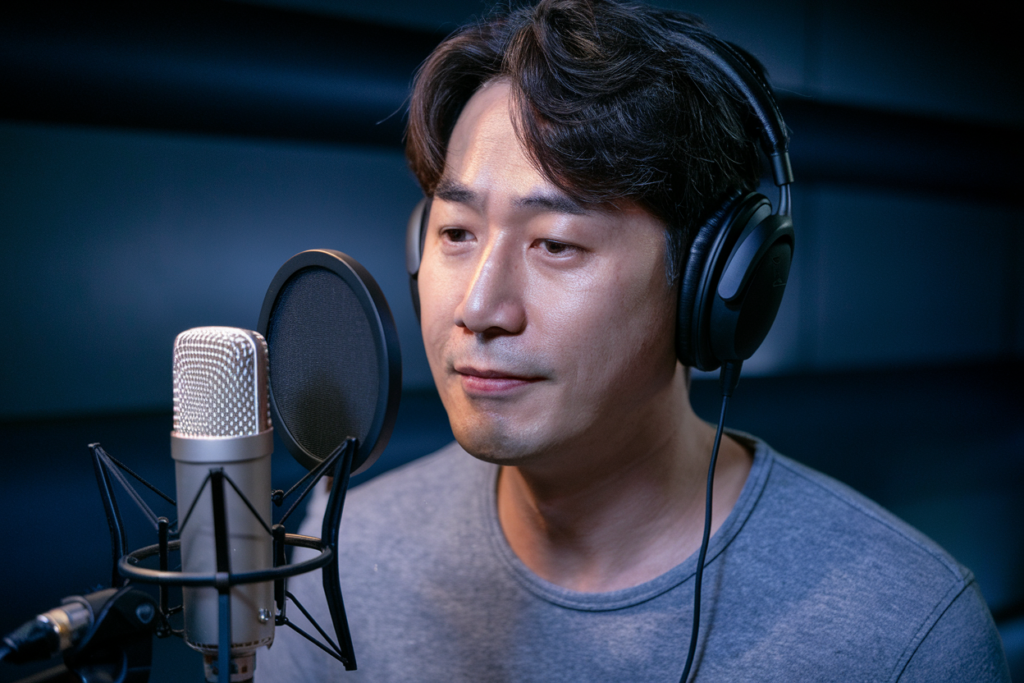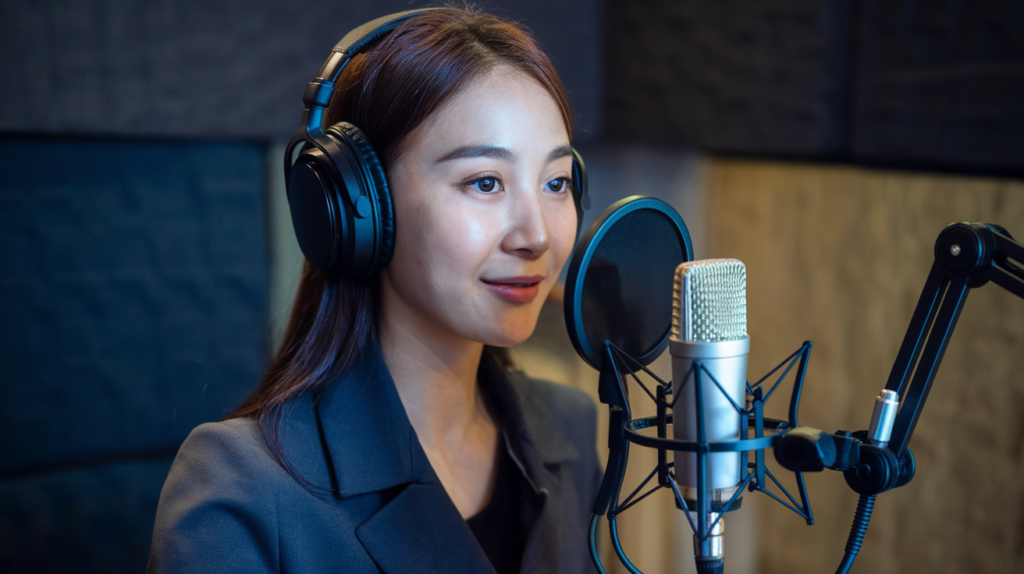Key Takeaways
- Understanding Regional Accents: Each region in Korea has distinct voiceover accents that add depth and authenticity to projects, making it essential to choose the right accent for your specific needs.
- Seoul Accent: Known for its neutrality and clear articulation, the Seoul accent is ideal for commercials and narration, appealing broadly to audiences.
- Busan Accent: Characterized by warmth and liveliness, the Busan accent is perfect for emotionally engaging roles, enhancing relatability in performances.
- Gyeongsang Accent: With sharp intonations suitable for assertive or humorous characters, this accent captures attention effectively in animated series and character-driven narratives.
- Jeolla Accent: The softer, melodic tones of the Jeolla accent excel in storytelling formats, creating immersive experiences particularly suited for documentaries and educational content.
- Impact of Voice Talent Selection: Choosing voice actors who embody specific regional accents enriches cultural authenticity and enhances how messages resonate with diverse audiences.
Ever wondered how regional accents shape Korean voiceovers? Understanding these nuances can make or break your project, whether you’re diving into animation, dubbing films, or just exploring the rich tapestry of Korean culture. Each region in Korea boasts its own distinct accent and intonation that adds depth and authenticity to voice work.
Overview of Korean Voiceover Accents
Korean voiceovers showcase rich regional accents that enhance the depth and authenticity of each project. Understanding these accents is vital for selecting the right voice talent for your needs. Different areas in Korea contribute distinct characteristics to their speech, influencing intonation and cadence.
Seoul Accent
The Seoul accent stands as the most recognized among Korean voiceovers. It’s often considered neutral, making it a popular choice for various projects like commercials and narration. Voice artists from this region typically exhibit clear articulation, which appeals to a broad audience.
Busan Accent
Busan offers a unique flavor with its lively tone and distinct pronunciation. This accent brings warmth and friendliness, making it ideal for roles requiring emotional engagement or relatability. Clients seeking an authentic representation of southern culture might prefer voice actors from this area.
Gyeongsang Accent
Gyeongsang dialects are known for their sharp intonations and stronger pronunciations. Voice over talents from this region can convey assertiveness or humor effectively, fitting perfectly in animated series or character-driven narratives. The dynamic nature of Gyeongsang accents captures attention instantly.
Jeolla Accent
Jeolla’s accent features softer tones with melodic qualities that lend themselves well to storytelling formats. Voice over artists hailing from Jeolla excel in creating immersive experiences, particularly suitable for documentaries or educational content where subtlety matters.
Incheon Accent
Incheon presents yet another variation with influences from both urban Seoul and surrounding regions. This hybrid quality allows voice over actors to navigate diverse roles seamlessly, appealing to audiences across different demographics.
Each regional accent enriches the overall landscape of Korean voiceovers, allowing you to choose based on the tone you wish to evoke in your project. Whether you’re producing animation, dubbing films, or crafting compelling advertisements, tapping into these nuances can elevate your content significantly.
Regional Accents in Korea
Regional accents play a vital role in Korean voiceovers, adding depth and authenticity to various projects. Understanding these accents can significantly enhance the selection process for voice talent, making your content resonate more with audiences.
Seoul Accent
The Seoul accent stands out for its neutrality and clear articulation. This makes it a preferred choice for commercial voiceovers and narration. Voice actors using this accent often convey professionalism and clarity, appealing to a broad audience base. If you’re looking for straightforward communication without regional bias, the Seoul accent fits perfectly.
Busan Accent
The Busan accent brings warmth and energy into voice work. Characterized by its lively tone, it’s ideal for emotionally engaging roles that require enthusiasm or charm. When you choose a voice artist with a Busan accent, expect an inviting delivery that breathes life into characters or narratives.
Daegu Accent
The Daegu accent features unique intonations that reflect the region’s cultural nuances. It offers versatility across different genres of voiceover work, from playful animations to serious documentaries. A voice actor proficient in this accent adds an authentic touch while connecting deeply with local audiences.
Jeolla Accent
Known for its softer, melodic tones, the Jeolla accent excels in storytelling contexts. This accent creates an intimate atmosphere that’s perfect for narratives requiring tenderness or emotional depth. Opting for a voice over talent skilled in the Jeolla dialect enhances your project’s storytelling capabilities significantly.
Gyeongsang Accent
The Gyeongsang accent is characterized by sharp intonations and assertive speech patterns. It works exceptionally well for humorous or authoritative characters within animation or film dubbing projects. By selecting a voice over artist familiar with this regional style, you ensure your character stands out with distinctiveness and flair.
Understanding these regional accents not only enriches your project but also helps you select the right voice talent to convey specific emotions effectively—making all the difference in how your message is received.
Impact of Regional Accents on Voiceover Work
Regional accents significantly influence voiceover work in Korea. Each accent carries its own distinct characteristics, enhancing the authenticity of a project and creating a deeper emotional connection with the audience.
The Seoul accent stands out for its neutrality. This clarity makes it ideal for commercials and narration where crisp communication is key. In contrast, the Busan accent brings warmth and vibrancy to characters, making it perfect for roles that require emotional depth.
If you’re considering projects needing humor or assertiveness, look no further than the Gyeongsang accent. Its sharp intonations can bring lively energy to any script. Meanwhile, the Jeolla accent, with its softer tones, excels in storytelling formats, offering a melodic touch that captivates listeners.
Moreover, don’t overlook the Daegu accent; it offers versatility across genres while resonating with local audiences. Selecting voice talent who embody these regional nuances enriches your project’s cultural authenticity.
Understanding these regional accents not only aids in selecting appropriate voice artists but also enhances how messages are perceived by varied audiences. Engaging voice actors who master specific accents can elevate animations and dubbing efforts significantly—transforming how stories are told through sound alone.
Notable Voice Actors and Their Regional Accents
In the world of Korean voiceovers, certain voice actors stand out due to their mastery of regional accents. These talents bring unique flavors to their performances, enhancing the authenticity of various projects.
Seoul Accent
Voice artists from Seoul often showcase a neutral tone with clear articulation. This clarity makes them ideal for commercials and narration where straightforward communication matters most. Many top voice actors gravitate toward this accent because it resonates well with a wide audience.
Busan Accent
Voice actors hailing from Busan deliver lively and warm performances. Their engaging tones are perfect for emotionally charged roles in dramas or animated features. If you’re looking for a voice that can draw listeners in, consider talents with this distinctive accent.
Gyeongsang Accent
The sharp intonations typical of the Gyeongsang region make its voice talent suited for assertive or humorous characters. When you want to convey strong emotions or add comedic flair, selecting a voice actor proficient in this accent can elevate your project significantly.
Jeolla Accent
Jeolla accents feature softer, melodic tones that shine in storytelling contexts. Voice artists skilled in this dialect often excel at creating intimate connections through their narratives, making them invaluable in animation and audiobooks.
Daegu Accent
Daegu’s unique intonations offer versatility across genres. Talented voice actors from this region adapt easily to different styles, ensuring they meet diverse project needs while connecting deeply with local audiences.
Choosing the right voice actor who embodies these regional accents plays a crucial role in how effectively your message is conveyed. By understanding these nuances, you enhance not only the quality but also the emotional depth of your projects—making every sound choice count.
Conclusion
Understanding the regional accents of Korean voiceovers enriches your appreciation for the art of storytelling. Each accent brings a unique flavor that enhances character depth and emotional resonance in various media. By choosing the right voice talent who masters these accents, you can significantly improve your project’s authenticity and impact.
Whether it’s the neutrality of Seoul or the warmth of Busan, leveraging these nuances allows you to connect with audiences on a deeper level. Recognizing how these accents shape performances will guide you in making informed decisions for successful voiceover projects. Embrace the diversity of Korean accents to elevate your narratives and leave a lasting impression.
Frequently Asked Questions
What is the significance of regional accents in Korean voiceovers?
Regional accents in Korean voiceovers enhance authenticity and emotional depth. Each accent reflects cultural nuances, making characters more relatable and enriching storytelling across various media projects like animation and film dubbing.
How do different Korean accents impact voiceover work?
Different Korean accents add unique characteristics to performances. For example, the Seoul accent is neutral for clear communication, while Busan’s lively tone engages emotionally. Each accent fits specific roles, enhancing audience connection and overall project quality.
Which Korean region has a neutral accent suitable for narration?
The Seoul accent is known for its neutrality and clarity. It’s commonly used in commercials and narration because it provides straightforward communication without strong regional inflections that could distract from the message.
What makes the Busan accent special in voice acting?
The Busan accent features a lively tone that conveys warmth and emotion. This makes it ideal for roles requiring strong emotional engagement, allowing actors to connect deeply with audiences through their performances.
How does the Gyeongsang accent contribute to character portrayal?
The Gyeongsang accent is characterized by sharp intonations, making it well-suited for assertive or humorous characters. Its distinct sounds help convey specific personality traits effectively, adding richness to voiceover performances.
Why are Jeolla accents preferred for storytelling in voiceovers?
Jeolla accents offer softer, melodic tones that create an intimate atmosphere perfect for storytelling. These qualities enable voice actors to draw listeners into narratives, enhancing emotional resonance during performance.
Can you explain the versatility of Daegu voices in projects?
Daegu voices are recognized for their unique intonations that allow adaptability across various genres. This versatility helps them connect with local audiences while fitting diverse character roles effectively within projects.
How do regional accents affect audience perception of a project?
Regional accents significantly influence how messages are received by providing authenticity and cultural context. They help establish deeper emotional connections between characters and audiences, enhancing overall engagement with the content.







